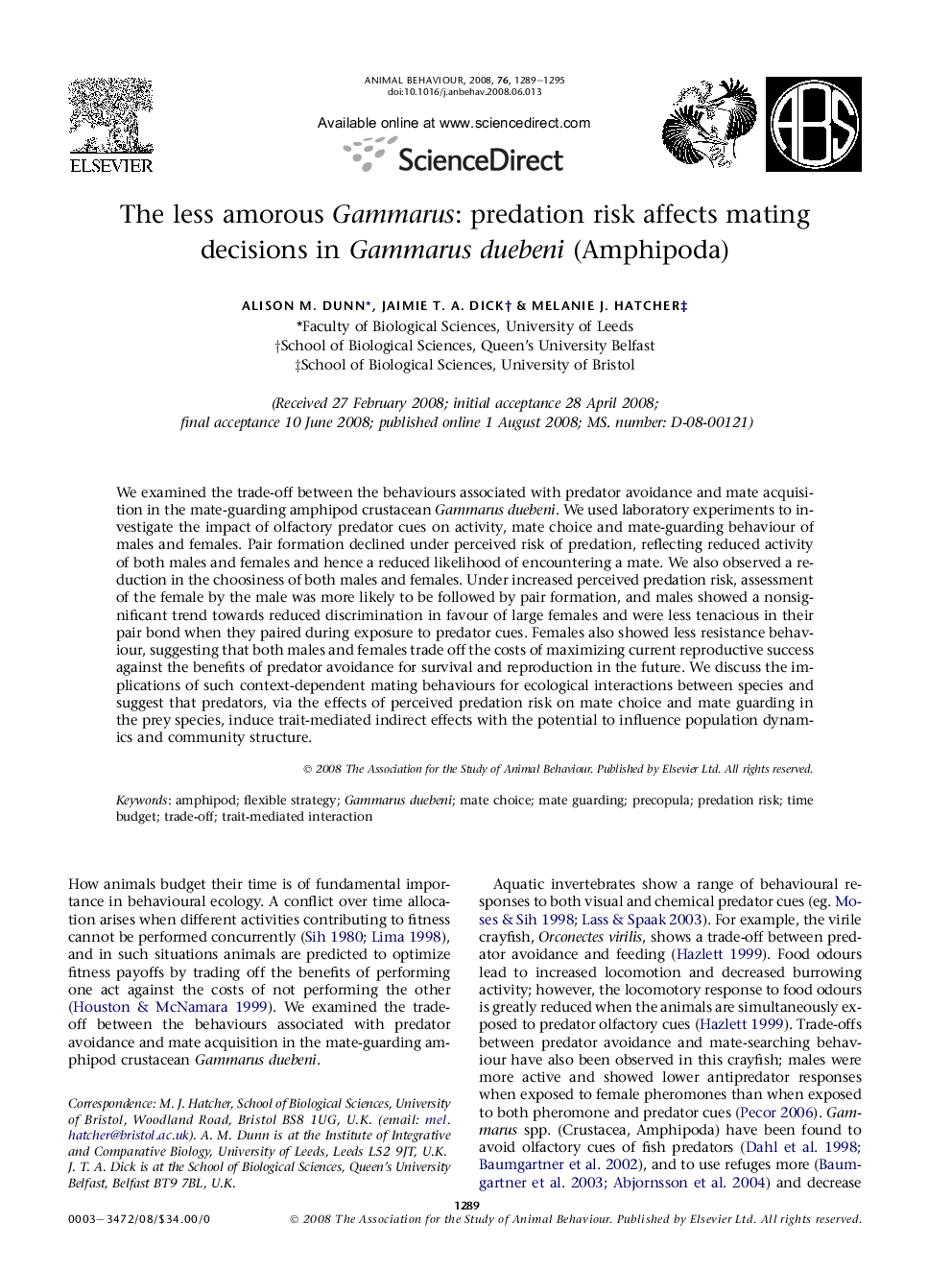| Article ID | Journal | Published Year | Pages | File Type |
|---|---|---|---|---|
| 2418767 | Animal Behaviour | 2008 | 7 Pages |
We examined the trade-off between the behaviours associated with predator avoidance and mate acquisition in the mate-guarding amphipod crustacean Gammarus duebeni. We used laboratory experiments to investigate the impact of olfactory predator cues on activity, mate choice and mate-guarding behaviour of males and females. Pair formation declined under perceived risk of predation, reflecting reduced activity of both males and females and hence a reduced likelihood of encountering a mate. We also observed a reduction in the choosiness of both males and females. Under increased perceived predation risk, assessment of the female by the male was more likely to be followed by pair formation, and males showed a nonsignificant trend towards reduced discrimination in favour of large females and were less tenacious in their pair bond when they paired during exposure to predator cues. Females also showed less resistance behaviour, suggesting that both males and females trade off the costs of maximizing current reproductive success against the benefits of predator avoidance for survival and reproduction in the future. We discuss the implications of such context-dependent mating behaviours for ecological interactions between species and suggest that predators, via the effects of perceived predation risk on mate choice and mate guarding in the prey species, induce trait-mediated indirect effects with the potential to influence population dynamics and community structure.
